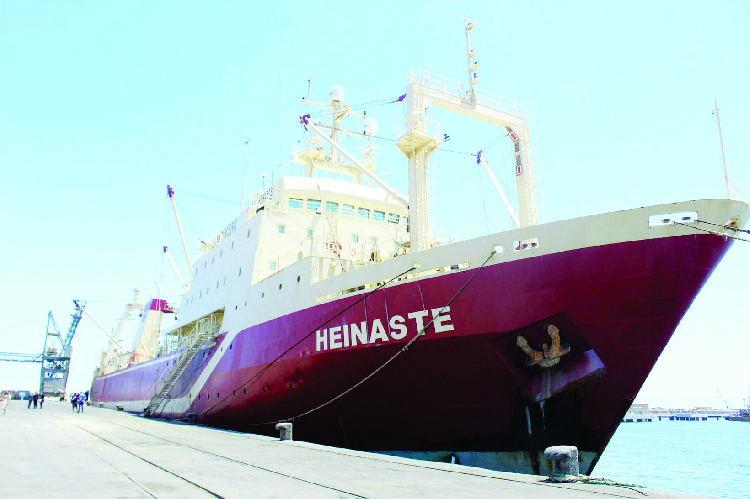Icelandic fishing company Samherji, which is at the centre of the Fishrot corruption investigations, is suspected of using the Faroe Islands to avoid paying employee income tax in Namibia.
The Faroe Islands are about halfway between Norway and Iceland.
Media reports from Iceland indicate that the fishing company used the islands to avoid paying tax amounting to US$3 million (N$43 million) in Namibia.
The Faroe Islands police recently launched an investigation into Samherji’s subsidiary dealings on the islands after the tax authority reported the fishing giant for suspected tax evasion.
No formal charges have been laid, but Samherji could face charges of illegal set-up and tax evasion in the Faroe Islands.
The alleged tax evasion is believed to involve 14 Icelandic fishermen who were working in Namibia, but, according to media reports, were registered as cargo vessel employees for Samherji’s subsidiary on the Faroe Islands.
Because of this suspected dubious arrangement, the fishermen reportedly evaded paying tax in Namibia from 2016 on three Samherji vessels: the Saga, the Heinaste and the Geyser.
In a televised documentary on the Faroe Islands’ national television (KvF) it was revealed that Samherji allegedly used this tactic to bypass the law that requires foreign nationals to pay tax on income generated in Namibia.
A media report indicated that Samherji paid about US$ 2,7 million to tax authorities on the Faroe Islands after the documentary was aired.
It is not clear if the islands’ tax authorities will pay this money to Namibia.
A source close to Samherji’s dealings in Namibia denies the tax-evasion allegations, saying all Icelandic crew who worked on the horse-mackerel trawlers paid tax in Namibia.
“Does it make sense that Faroe Islands would open a case of an Icelandic company that has an Icelandic crew working in Namibia? If there is doubt, the Directorate of Maritime Affairs’ records of who enters Namibian waters are available and the guilty party can be charged,” the source says.
Philip Iwete, the chairperson of the Namibian Maritime Officers and Shipping Association, confirmed that the possibility of tax evasion is common practice in the industry.
He says this is because foreign crew members are recuited via employment agencies, which facilitate tax evasion.
This is done because the salaries of foreign crew members are not processed through local banks, but are paid into foreign countries’ accounts where they pay tax, Iwete says.
“There are loopholes in the system. The marine industry is not very well regulated. This is how foreign employees get leeway to take money from the country without paying tax. There are many companies practising this.
“The Ministry of Finance is to blame because they know what is happening. They are the ones authorising some of these payments to leave the country,” Iwete says.
Due to the preservation of the secrecy clause of the Income Tax Act, Namibia RevenueAgency (Namra) commissioner Sam Shivute could not divulge any information regarding the matter.
Samherji could pay a fine of up to three times the amount owed if found guilty of tax evasion.
The company ceased all its operations in Namibia in 2019.
It sold its last asset in Namibia, the Heinaste horse-mackerel freezer trawler, to Tunacor fisheries.
The Heinaste has since been renamed the Tutungeni. Questions sent to Samherji went unanswered at the time of going to print.
Stay informed with The Namibian – your source for credible journalism. Get in-depth reporting and opinions for
only N$85 a month. Invest in journalism, invest in democracy –
Subscribe Now!






